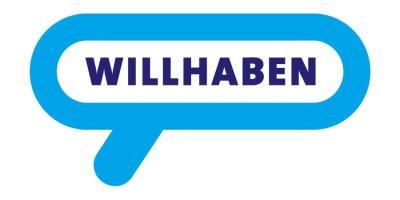For social interaction, as an information source or as a preparation for the job market - the internet and all its opportunities have become integral parts of the world, especially for the young generation. The initiative "Consumer Classroom" of the European Commission helps teachers who want to educate their students about risks and chances.
Besides all amenities, also danger lurks beneath the surface of the World Wide Web. Children and young adults are often easy to influence and therefore may become victims of traps or fraud. This makes it even more important for teachers, to prepare comprehensive information about the proper handling of social networks, online shopping, apps etc.
Modern methods
The so called "Digital Natives" are said to be already born with a smartphone in their hands. The term shall express, that today’s youth handles new technologies with great intuition. These abilities should be promoted but need some guidance.
Teachers who want to address this issue will find resources, peadagogical tools and lesson plans on the online platform "Consumer Classroom". It was founded by the European Commission and can also be used as a network: Teachers, classes and schools of the EU may connect and implement cross-border projects together.
How can teachers use the internet as a tool in their lessons? Can they integrate Google and other search engines into their lesson? Which digital skills should modern schools facilitate? Which rights and duties exist in the internet? Consumer Classroom provides tools, tips and materials to encounter these questions.
Cyberbullying
But danger does not only come from the outside to the students. A widely recognized phenomenon unfortunately is so called "cyberbullying", which happens especially between same aged teenagers at social networks. The apparent anonymity of the internet lowers inhibitions and so the teenagers express things they would not say in a real face-to-face confrontation.
In some cases, these aggressions, which are often aimed at outsiders, may lead to serious consequences. Consumer Classroom also provides resources for teachers to prevent cyberbullying and to educate their students about the dangers of such behavior.
EU-wide competition
A good example for an initiative encountered by Consumer Classroom which deals with the internet, is the Inter-School Competition. In its second edition the topic was "Online Shopping: Know enough to make the best decisions!". All secondary schools within the European Union were invited to take part and to create a multimedia lesson, a video or photos on the topic.
The best ten contributions were chosen by an expert jury and are currently presented at the Consumer Classroom website. The winner will be selected via Facebook, the deadline for voting is May 16th. The first price is a one-week trip to Brussels for the whole class.
Wide range
Consumer Classroom does not only provide resources about internet safety and the prevention of cyberbullying. Teachers may also find material about other contemporary topics like climate change, media, sustainability, global warming and much more. Registered teachers also can interact with each other and talk about their experiences. Creative ideas and lesson plans can easily be shared with teachers all over Europe.










